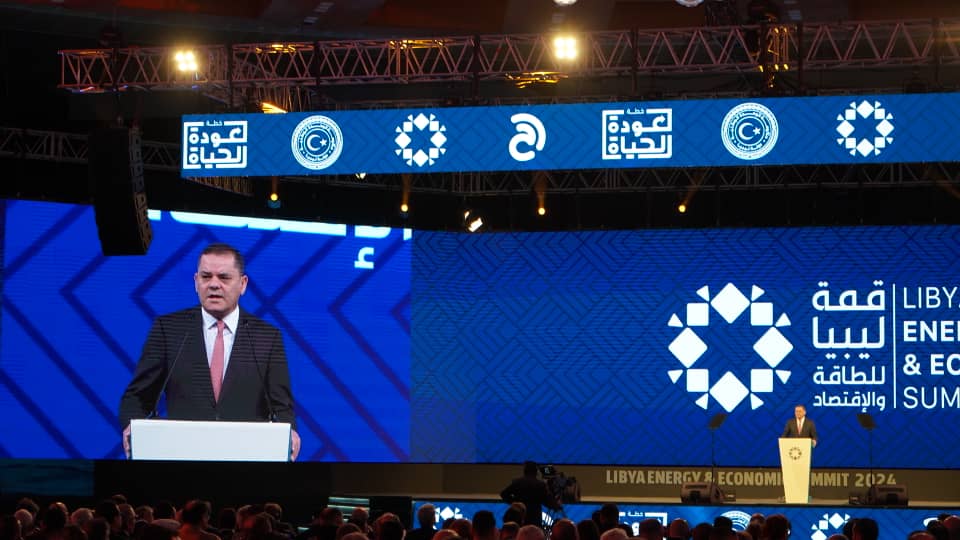The Libya Energy and Economy Summit 2024 being held at the Rixos Hotel in the capital Tripoli concluded this week. It was supposed to be a major economic event in the oil and gas sectors, but domestic political differences cast a shadow over the summit, negatively impacting attendance and participation levels despite the evident organizing efforts.
Hamada NC7 Deal
The summit was scheduled to see the signing of an agreement to develop oil and gas exploration in Block NC7 of the Al-Hamada Basin between the National Oil Corporation and a coalition of Italy’s Eni, UAE’s ADNOC and France’s TotalEnergies. However, Prime Minister Abdul Hamid Al-Dabaiba’s government had to halt this due to objections from legislative and oversight bodies in Libya as well as the Ministry of Oil and Gas.
Absence of Senior Figures
In addition to the absence of key energy summit partners – Italian Prime Minister Giorgia Meloni, TotalEnergies CEO Patrick Pouyanné, and Eni CEO Claudio Descalzi – Central Bank Governor Sadiq Al-Kabir and Audit Bureau President Khaled Shakshak were also not present at the summit.
Attendance of Dbeibeh Qaderbou
On the other hand, Prime Minister Abdul Hamid Al-Dbeibeh and head of the Administrative Control Authority Abdullah Qaderbou did attend, reflecting a rapprochement between the two sides at the expense of the political division with the central bank and audit bureau on the other side.
The National Oil Corporation appeared to be in the position of spectator regarding this division. After Farhat Bengdara was appointed NOC chairman in a deal of consensus between eastern and western camps, the western camp has now itself split, indicating the corporation has lost its ability to act as a neutral party due to the shift in the nature of the disputes.
Closure of Sharara Field
It is also believed that the continued closure of the Sharara oil field casts negative shadows over the summit’s goals and the investment climate in Libya as a whole, especially amidst the current political fragmentation. Stopping the Sharara field has led to Libya losing a quarter of its revenue from oil exports and could damage equipment and stations at the field.
Support by Dbeibeh
In his opening speech, Dbeibeh affirmed his government’s support for the oil and energy sector and its plans to double oil, gas production and exploration, stressing the government’s quest to create important programs, revive the national economy and solve the difficulties facing development in oil and gas.
The Tripoli-based Prime Minister held a number of meetings on the summit’s sidelines with heads of major oil companies representing Turkey, Italy, Spain, France and others including Eni, Repsol, TotalEnergies, OiLserv and BGN to discuss areas to develop cooperation in exploring for oil and investing in Libya’s energy potential.
Hopes of Bengdara
For his part, Farhat Bengdara explained that the oil and gas industry faces many difficulties, requiring cooperation between state institutions and the national and foreign private sectors, stressing that the goal is to increase production to 2 million barrels per day, which is linked to developing partnerships with foreign companies.
He said the corporation cleaned up nearly 14,000 tons of oil waste, confirming that their message to the Libyan people is that they will not fall short of defending the interests of the state.
The scene of notable absences on one side and conspicuous attendance on the other shows the severity of the political division inside western Libya’s camp, which negatively reflected on the energy summit’s reputation and hindered its rise to the coveted exceptional event in this sphere.
Thus any hopes of making a quantum leap on the economic level or attracting huge investments will remain predicated on stabilizing the political situation and resolving existing crises within the domestic house first and foremost.
